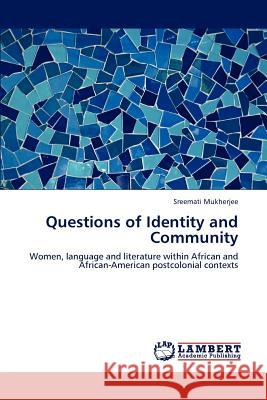Questions of Identity and Community » książka
Questions of Identity and Community
ISBN-13: 9783846580097 / Angielski / Miękka / 2012 / 224 str.
This book analyzes the various interfaces between language, culture, gender(woman), history and writing in Senegalese writer Mariama Ba's Une si longue lettre (So Long A Letter), South African(Botswana) writer Bessie Head's A Question of Power, and Toni Morrison's Pulitzer winning book Beloved. Postcolonial or post-slavery contexts denying power and legitimacy to women through the written word frame all three contexts. Ramatoulaye (Ba's heroine) breaks the Muslim convention of mirasse to speak out against a patriarchal society which denies women self-legitimacy through language. Bessie Head through her semi-autobiographical heroine Elizabeth negotiates apartheid, miscegenation, madness and exile through language to arrive at a certain degree of self-clarification and agency as a community builder and agriculturist. Toni Morrison's haunting classic of revisionist historiography on post-Reconstruction America, stresses both the scripted and the oral in narrative, allowing the slave woman Sethe to speak in her own voice, and yet allowing the narrative to remain witness to the most intelligent and sophisticated linguistic and textual maneuvers."
This book analyzes the various interfaces between language, culture, gender(woman), history and writing in Senegalese writer Mariama Bâs Une si longue lettre (So Long A Letter), South African(Botswana) writer Bessie Heads A Question of Power, and Toni Morrisons Pulitzer winning book Beloved. Postcolonial or post-slavery contexts denying power and legitimacy to women through the written word frame all three contexts. Ramatoulaye (Bâs heroine) breaks the Muslim convention of mirasse to speak out against a patriarchal society which denies women self-legitimacy through language. Bessie Head through her semi-autobiographical heroine Elizabeth negotiates apartheid, miscegenation, madness and exile through language to arrive at a certain degree of self-clarification and agency as a community builder and agriculturist. Toni Morrisons haunting classic of revisionist historiography on post-Reconstruction America, stresses both the scripted and the oral in narrative, allowing the slave woman Sethe to speak in her own voice, and yet allowing the narrative to remain witness to the most intelligent and sophisticated linguistic and textual maneuvers.











